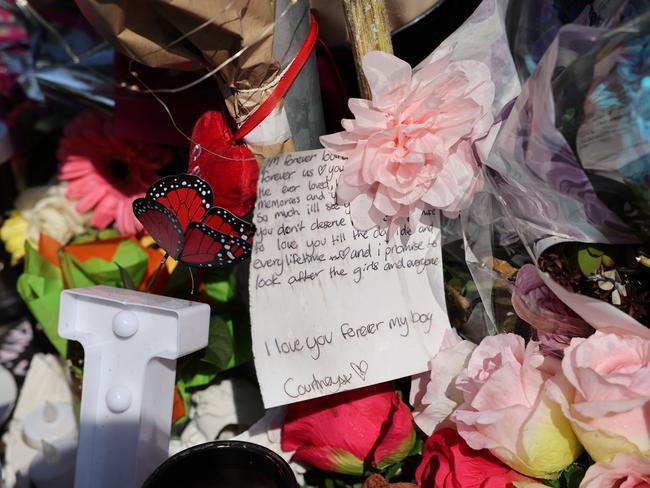Cops to receive new search powers as Sydney’s youth knife crisis grows
Western Sydney’s youth knife crime crisis is showing no signs of abating, the latest figures reveal, with new laws giving police extra search powers to come into effect this summer.
NSW
Don't miss out on the headlines from NSW. Followed categories will be added to My News.
Western Sydney’s youth knife crime crisis is showing no signs of abating, the latest figures reveal, with new laws giving police extra search powers to come into effect this summer.
Bureau of Crime Statistics and Research numbers show police took action against at least 275 youths for weapon offences across Sydney in the year to June 30 2024, up from 272 and 242 in the previous same 12-month periods.
In May, the Minns government introduced legislation to give police powers to use handheld scanners, or “wands”, to detect knives without warrants in designated areas such as on public transport or in shopping centres.
The reform was inspired by Queensland’s Jack’s Law, which was brought in after Jack Beasley, 17, was stabbed and killed on a night out.
The Daily Telegraph can reveal police will be able to call on the new “wanding” powers on the eve of the festive season, when the new law is proclaimed on December 9.
“The Law Enforcement (Powers and Responsibilities) and Other Legislation (Knife Crime) Bill 2024 will give NSW Police the power to stop and detain people in a designated area, such as a public transport station or shopping precinct, for the purpose of requiring them to submit to the use of a ‘wand’ or handheld scanner,” a spokesman for NSW Police said.
Under the new law, there will also be increased penalties for selling knives to juveniles.
It is understood police are still in the process of acquiring the exact metal detectors they want, but will use existing equipment in the meantime.
“The NSWPF already owns ‘wands’ or handheld scanners that have been used for past operations at major events,” the spokesman said.
According to the BOCSAR data, the epicentre of the knife crisis is the Blacktown local government area, which recorded 55 incidents in the most recent period — a gradual increase on figures of 53 and 44 in the previous two years.

Canterbury-Bankstown was the next worse area, with 31 incidents in the 12 months to June 2024, followed by Sydney CBD with 27, Fairfield with 17 and Parramatta with 16.
The City of Blacktown is home to some of Sydney’s most troubled suburbs, including Doonside and Mount Druitt, both of which have featured heavily in Sydney’s “postcode gang” wars, the subject of the Telegraph’s documentary The War: Young Blood.
Significant amounts of blood have been shed across Sydney as part of that conflict, which escalated after the stabbing death of a 17-year-old Uati “Pele” Faletolu at the Sydney Royal Easter Show in 2022.

The knife-related fatalities continued in April 2024, when 18-year-old Iyzaa-Jay Naden died on the steps of Blacktown Police Station after being stabbed in Doonside.
Mr Naden’s mother believes her son was targeted because his attackers assumed he was part of a street gang called 67 — a number that featured in his Snapchat handle.
Further chilling and more recent examples show the issue has even spread to western Sydney classrooms, with Blacktown police last month finding knives in the backpacks of two girls who claimed to be carrying the weapons “for their own protection”.A student was also suspended from a Blacktown school around the same time, after a teacher confiscated a hunting knife.




